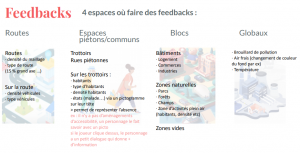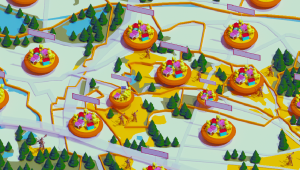Introduction
1001 rues is creating video games and softwares to guide land and town-planning based on democratic consultation.
I had the opportunity to work as a game designer on their biggest project yet, a turn-based city builder in which players can decide how they want to develop their cities and territory and experiment with the impacts of their choices. The main constraint was to find a balance between making it accessible to enhance the democratic aspect as well as sticking to the complex realities of urban-planning. I work alongside another designer on the concept and the overall first part of the project and I was in charge of the whole design on the second part.
My work can be split into 3 sections, regarding the 3 phases inside the game : the player makes choices, the system and its economy treats the changes and the players can observe feedbacks.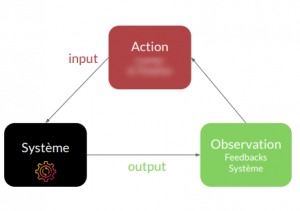
Please note that most of the work and details are under NDA.
Player’s choices system
Cards
The player has the possibility to place Cards to determine their actions and how they want to develop the city. This allows for a tangible way to act on the gameplay, reassuring non-players.

Each card has several parameters, in particular, they will affect one or several resources, positively or negatively and influence the city on the long-term. They will also take a certain number of turns. Cards can be a singular change (i.e. new building, new type of roads), a long-term change (i.e. promoting certain policies) or be applied on top of other ones in order to best stick to the town-planning realities.

City’s economy
I was in charge of the game’s economy and the simulation and reactions of the city. So I first listed all the possible resources that were first considered by the land-planners and that were interesting to take into account.
I arranged them to see how they could fit into categories such as primaries (influenced only by cards), secondary (influenced by cards and other resources) or tertiary (influenced only by other resources) and how they could be interconnected.
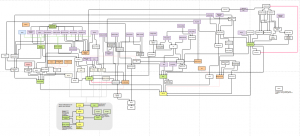
And well it was A LOT. So I worked on making them easier to deal with, both for the players as well as for the balancing phase.
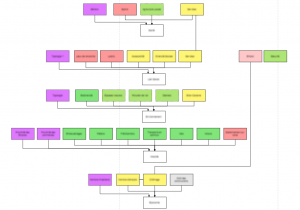
I also prototyped bits of the simple economy in Machinations to find flaws before the Unity project was set.
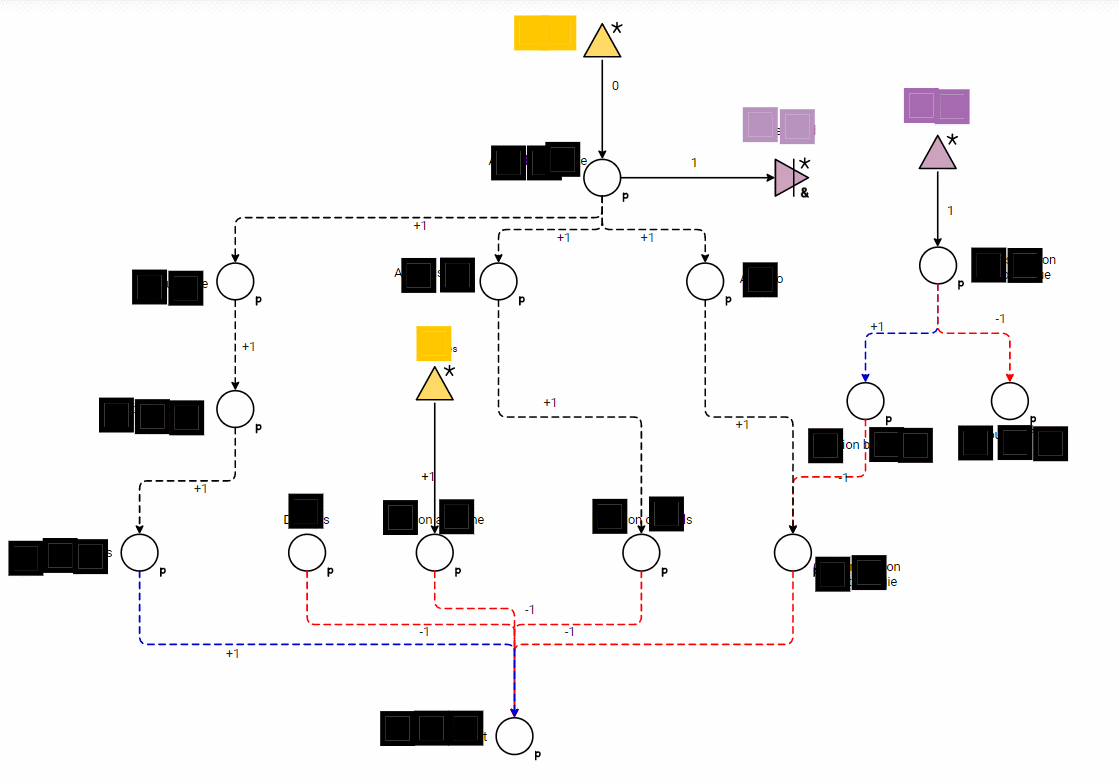
One of the main challenge of this game is that the cities already exists. Usually when a players starts in a city builder, they start on a blank page, an empty land, in this case, they had to take into account the existing land and constructions.
Observation
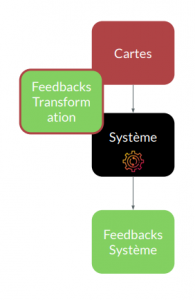 We had 2 types of feedbacks, immediate building feedback once a Card’s turns are over and the system feedbacks, which indicate the long term effects a Card had on the city.
We had 2 types of feedbacks, immediate building feedback once a Card’s turns are over and the system feedbacks, which indicate the long term effects a Card had on the city.
System feedbacks were a challenge because the game relies on what the player can experiment and learn from it in order to make enlighten choices. But some aspects of city-planning are hard to visualize without using too much UI (which was one of the constraints) such as health, education or social issues.
We therefore came up with several places to make feedbacks (Buildings, Roads, People and their thoughts and Global).